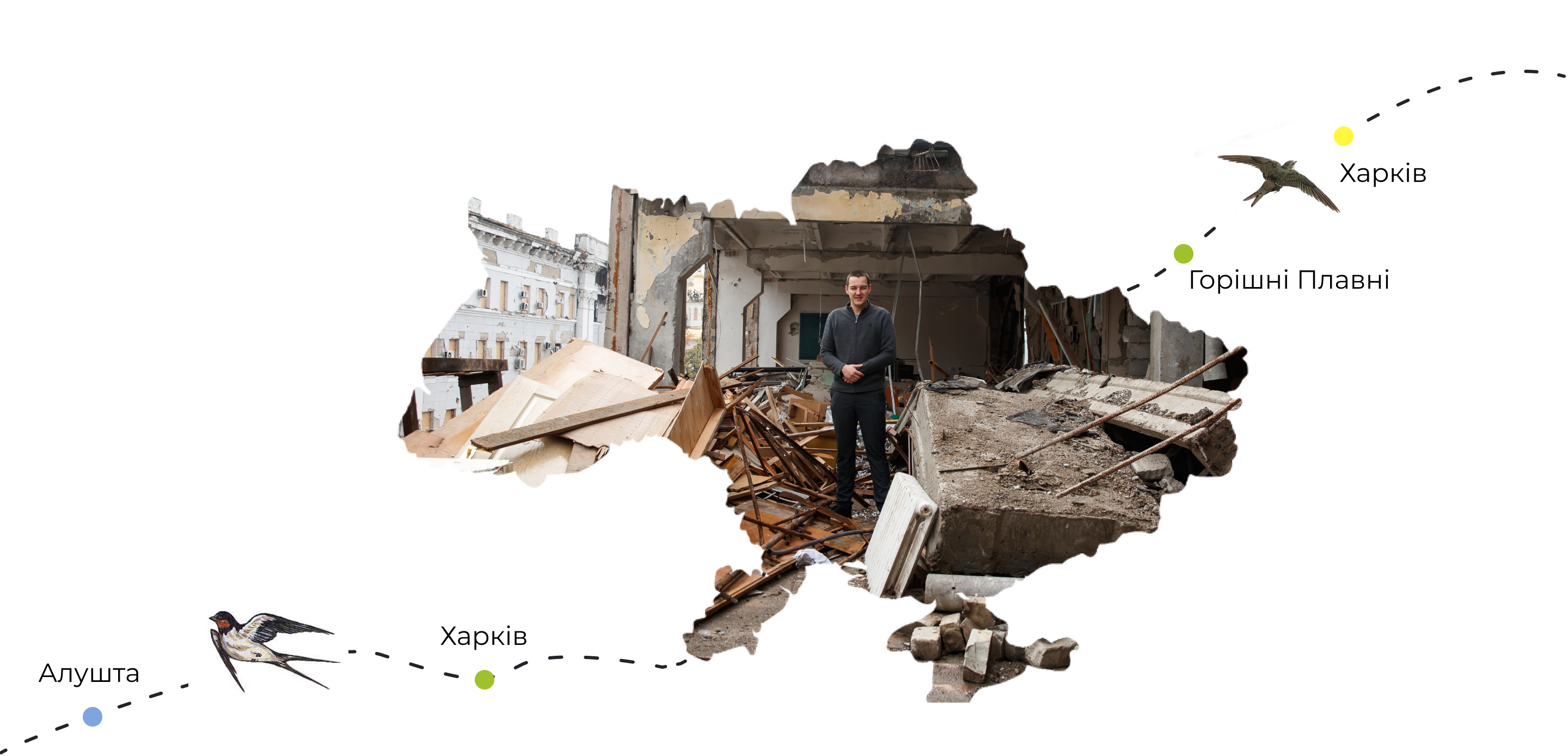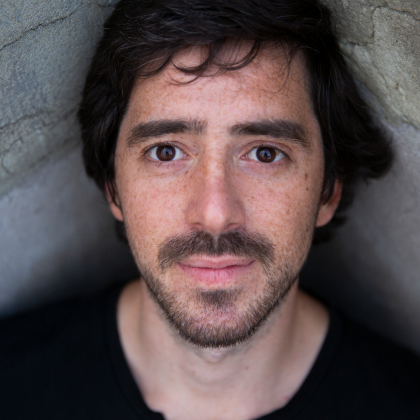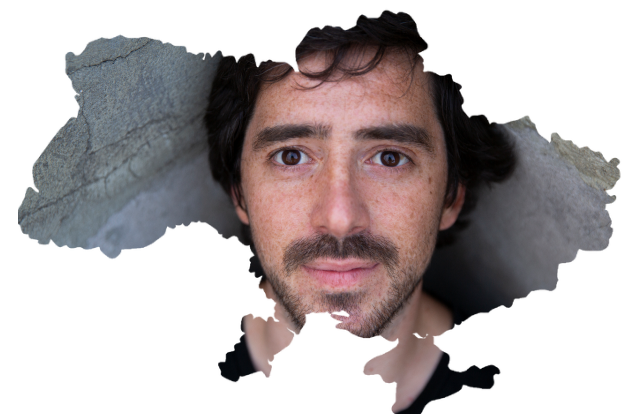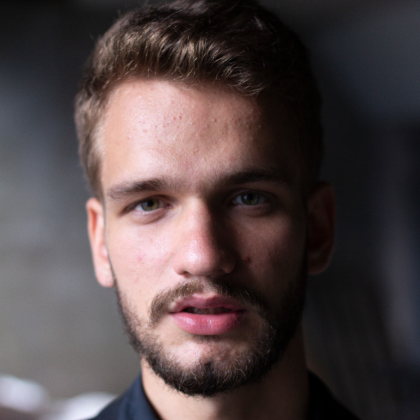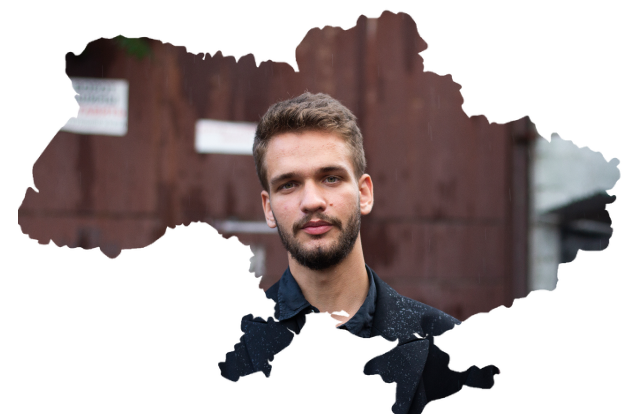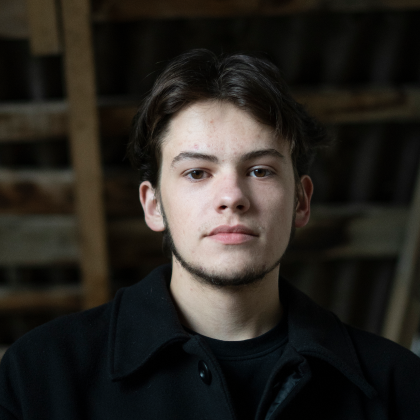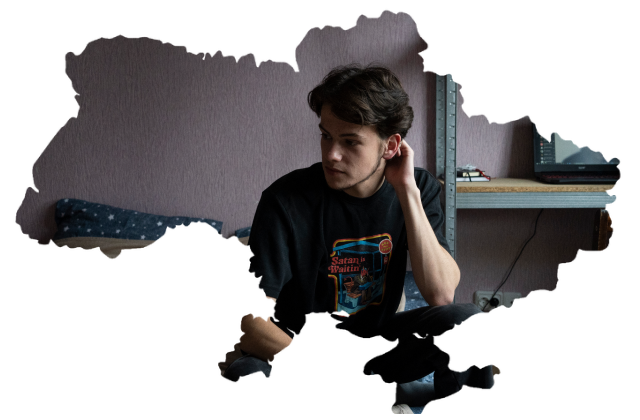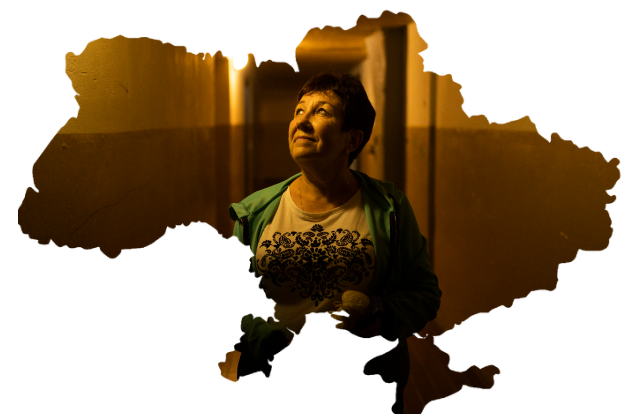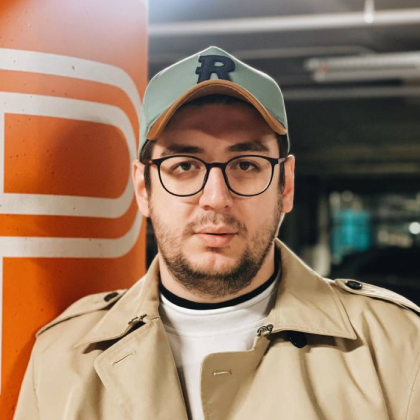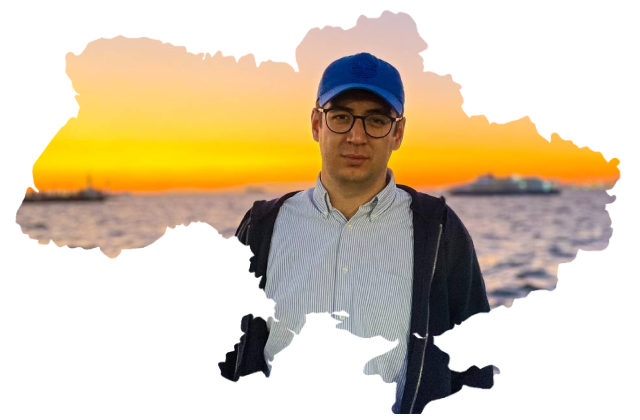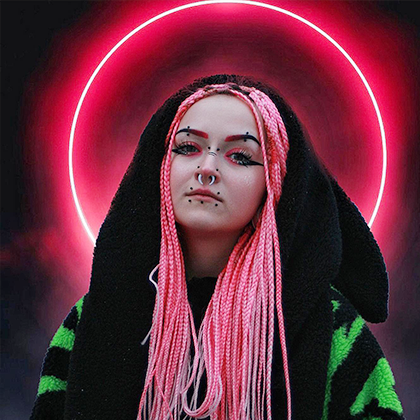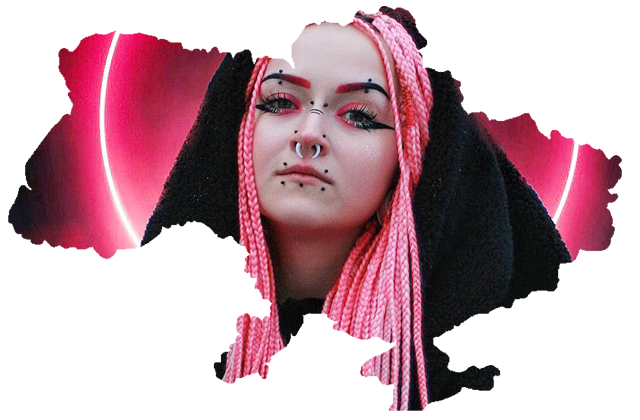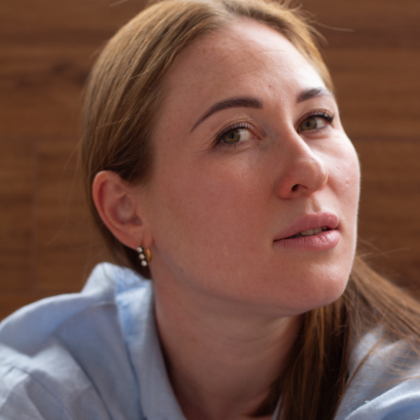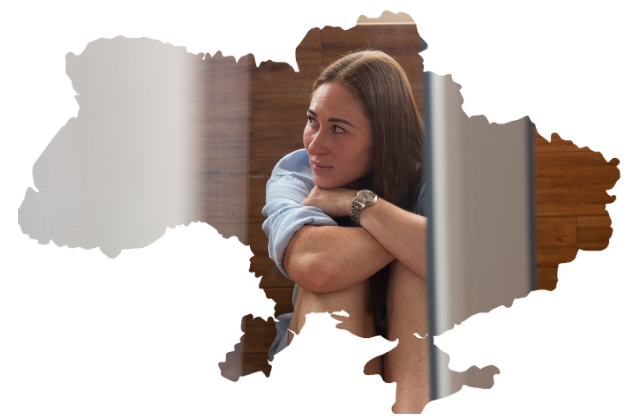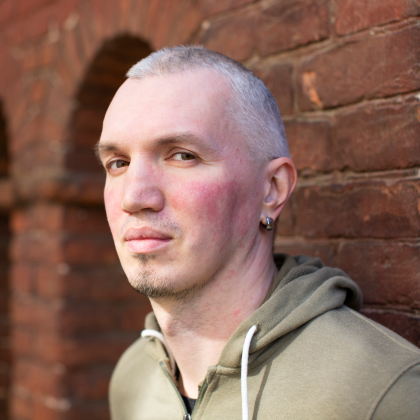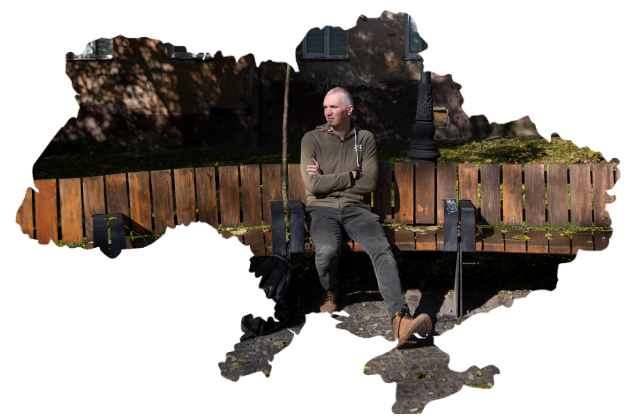Dmytro Yurchenko
An employee of the Kharkiv Regional Military Administration
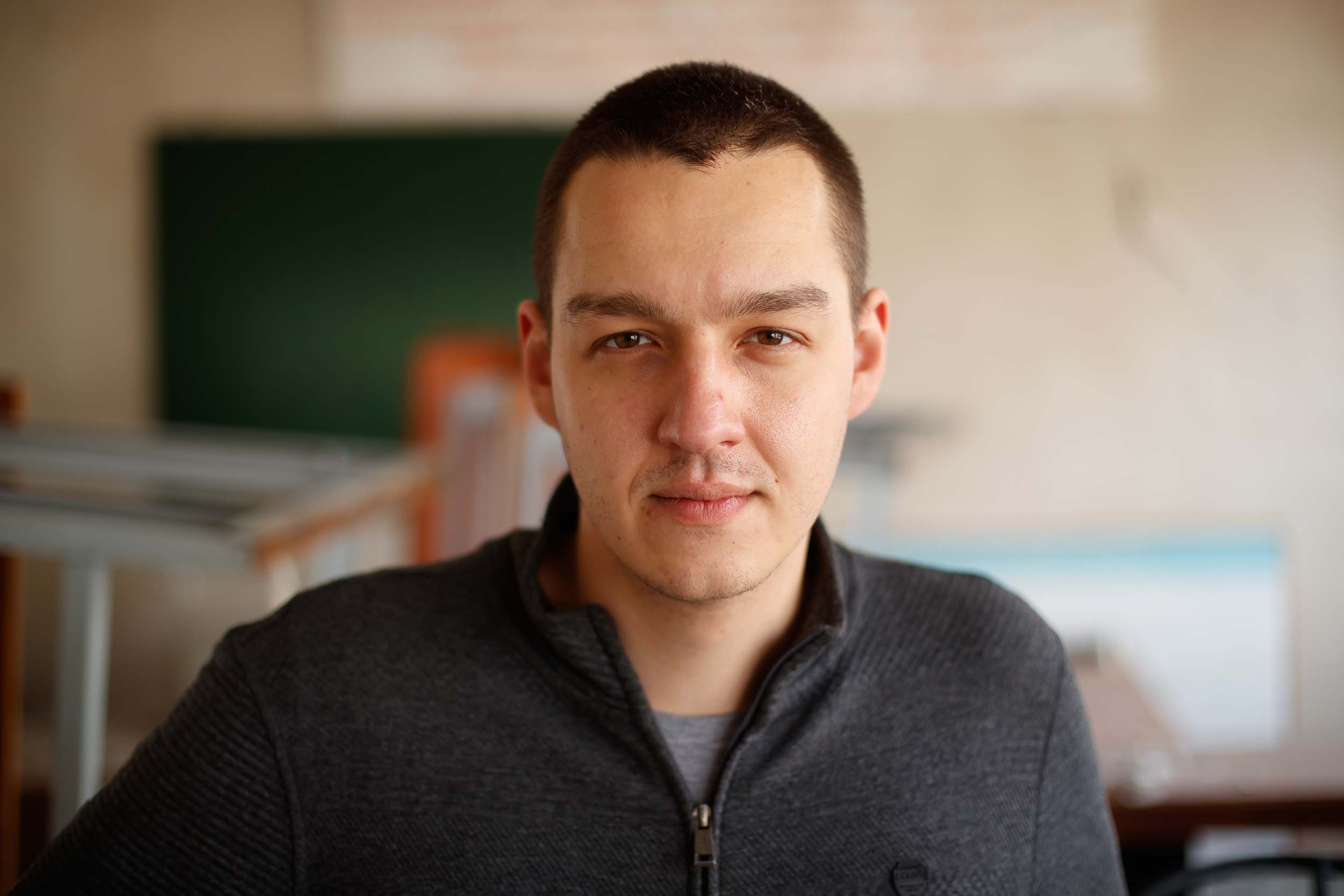
Alushta — Kharkiv — Horishni Plavni — Kharkiv
I came to Kharkiv in 2012 to study at the KNUCEA, Kharkiv National University of Civil Engineering and Architecture. Alushta, just as well as Crimea, couldn't boast a wide range of educational institutions, especially those of higher education.
So when it was time to decide on a university, I chose Kharkiv and went to KNUCEA. I studied there and visited my home in Crimea every now and then.
In 2014, after the Revolution of Dignity, I decided to stay in Kharkiv and not return to Crimea. That was because the peninsula was euphoric about the arrival of the "Russian Spring". A Russian flag was sticking out of almost every butthole there.
I didn't share the euphoria. By the way, when the Russians occupied Crimea, my parents told me that I could transfer from KNUCEA to the Moscow Architectural Institute. At that time, Crimeans were invited to study there. But I already studied at KNUCEA back then. There were other Crimeans among my classmates, and then, in 2014, they all rushed to Moscow. I was the only one from Crimea who stayed to study at KNUCEA.
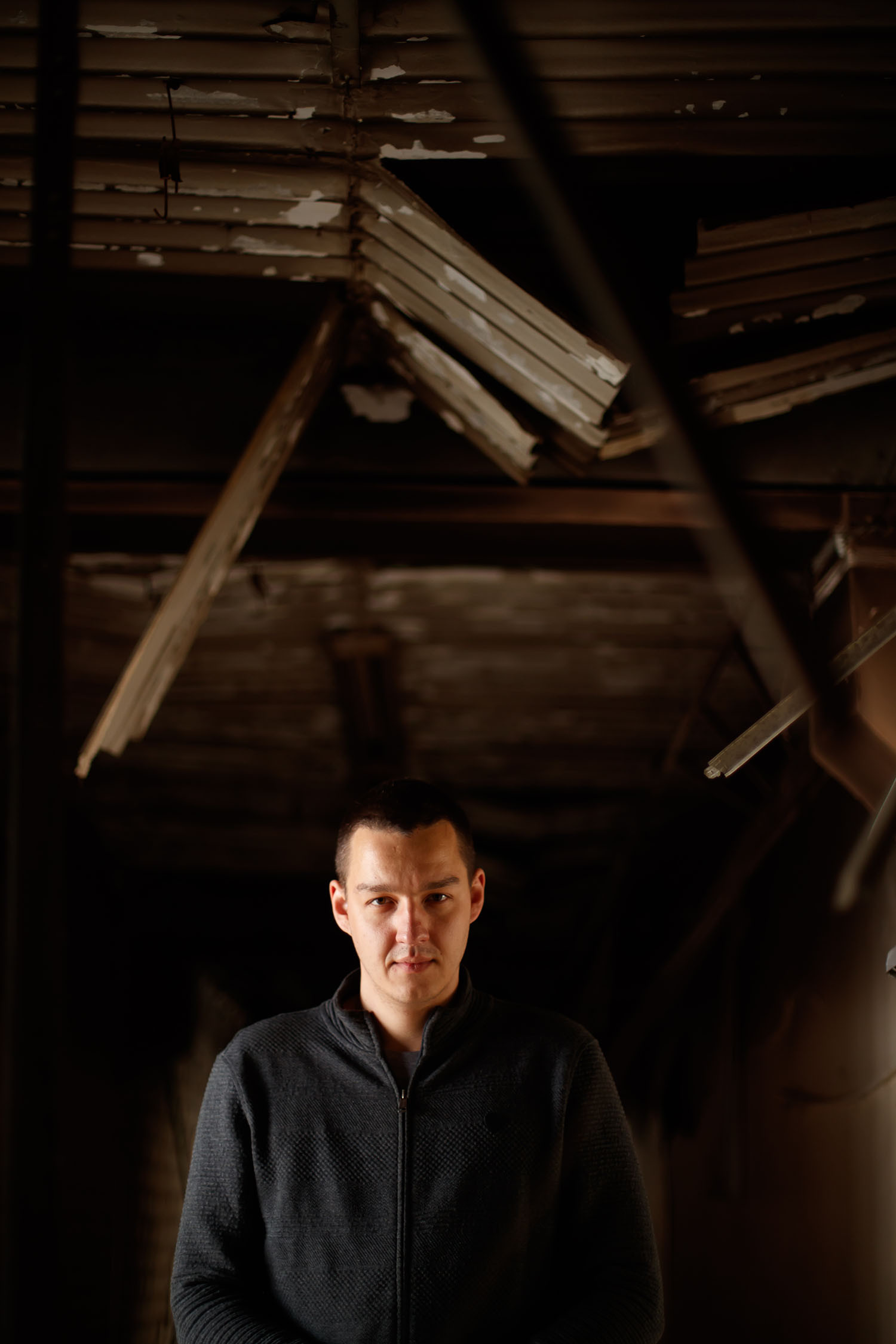
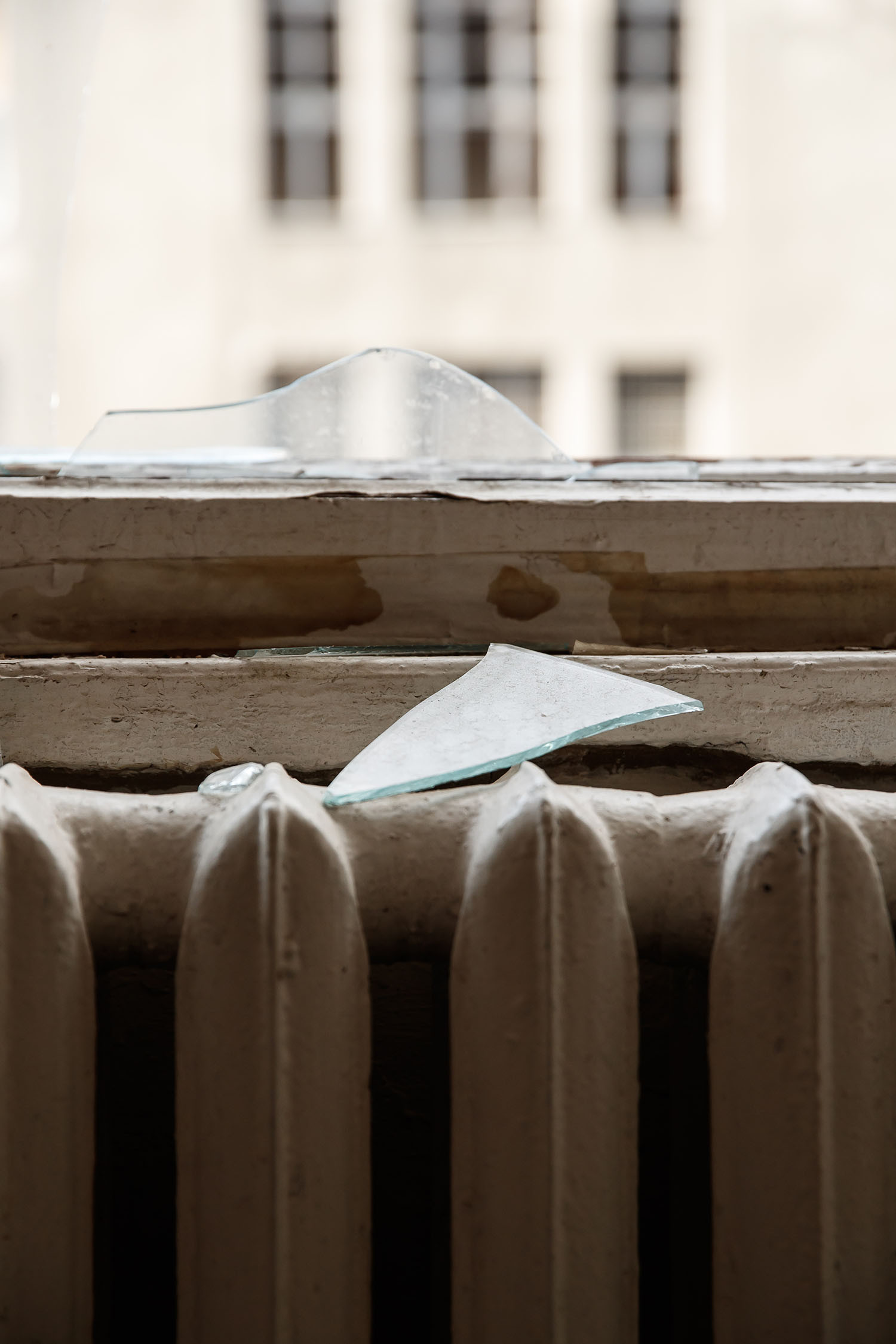
So, as of 2014, I decided to stay in Kharkiv permanently, because I don't want to go back to occupied Crimea. I study there, then I meet my future wife, Yulia. I get a job in the City Council as an inspector of the Inspection of State Architectural and Construction Control. I work there and get married. Alongside, there is a war in Donbas. But frankly speaking, unfortunately, we did not perceive it as war back then.
Then, February 2022 approached. The possibility of a full-scale Russian invasion was already actively discussed. I realized there would be war when I saw satellite images from the US intelligence service. It showed that Russia was deploying its troops about five kilometres from the Ukrainian border.
A few weeks before February 24, my wife and I went to METRO and bought 6,000 UAH worth of goods. We got some tinned meat, canned food, buckwheat, and even a kilo of tangerines in case of war. I checked the credit limits on my cards and had a financial cushion. Every day on my way home from work, I filled up a full tank of fuel. Just in case.
On February 23, my wife's friend and I went for a walk in Shevchenko Park. We talked about what would happen if war really broke out. We got home late. At around one o'clock in the morning, on February 24, I looked out the window at the panorama of the city. And for some reason, there was that thought that flashed across my mind that it was my last quiet evening.
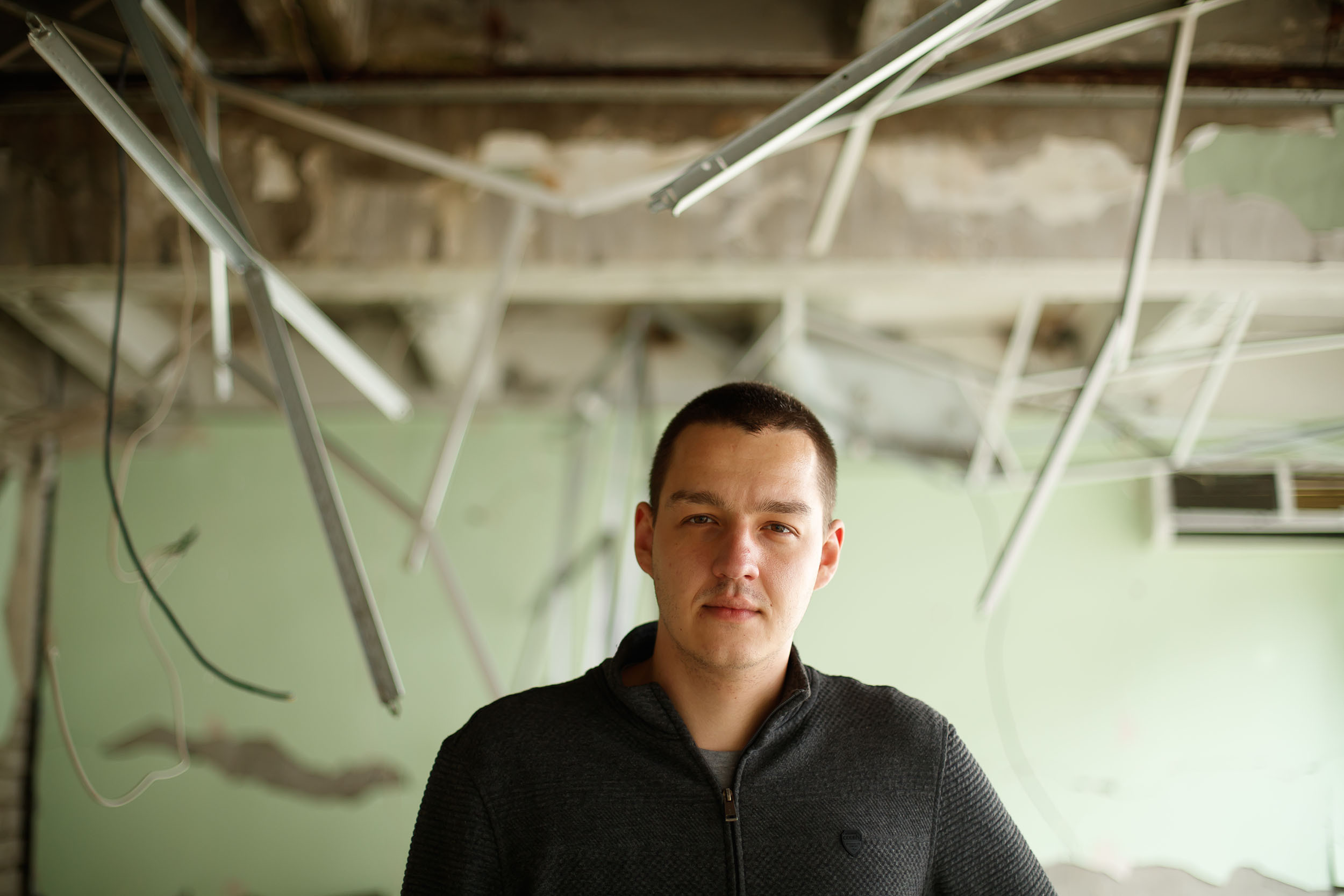
I fell asleep and had a strange dream: I was at a construction site and there was a concrete mixer that was making a pounding noise. It was pounding and pounding. Very hard. And as I was waking up, I realized it wasn't in my dream, it was outside. It was explosions.
My wife and I jumped out of bed, sorry for the details, totally naked. I rushed to the TV because they are supposed to broadcast instructions in case something like this happens. There were only some TV programs, no information. I had no idea what to do.
I took my phone. I saw that Putin had announced the start of a special military operation in Ukraine. There was information about explosions in different cities. We went out on the balcony for a smoke and pulled ourselves together. Then I went out to the Kiset shop for cigarettes; they still accepted cards.
We went to sleep in the subway that night. We made a bed for ourselves on the train and sat on our phones to somehow kill the time. I have a memory from that night on the underground. I was scrolling through my Instagram feed and I saw a story of two of my pals from Alushta, from the sauna. They were just sitting there, having a great time, taking a steam bath, while I am in the subway hiding from explosions with my family.
On February 26, my mother-in-law moved in with us. But her parents were staying in Saltivka at the time.
On February 27, we went to Sarzhyn Yar to get water. Normally we would order it, but because of the war, the deliveries temporarily didn't work. My wife has kidney problems so she really needs water.
We took two 20-litre bottles and left. We went to the "Monomakh's Cap", one of the springs at Sarzhyn Yar because we thought it would be quicker that way. We filled the first tank, and I took it to the car. Yulia stayed to fill the second one. As soon as I reached the car, I heard the whistle of a plane. The bombing started. I could see bombs literally falling from the sky.
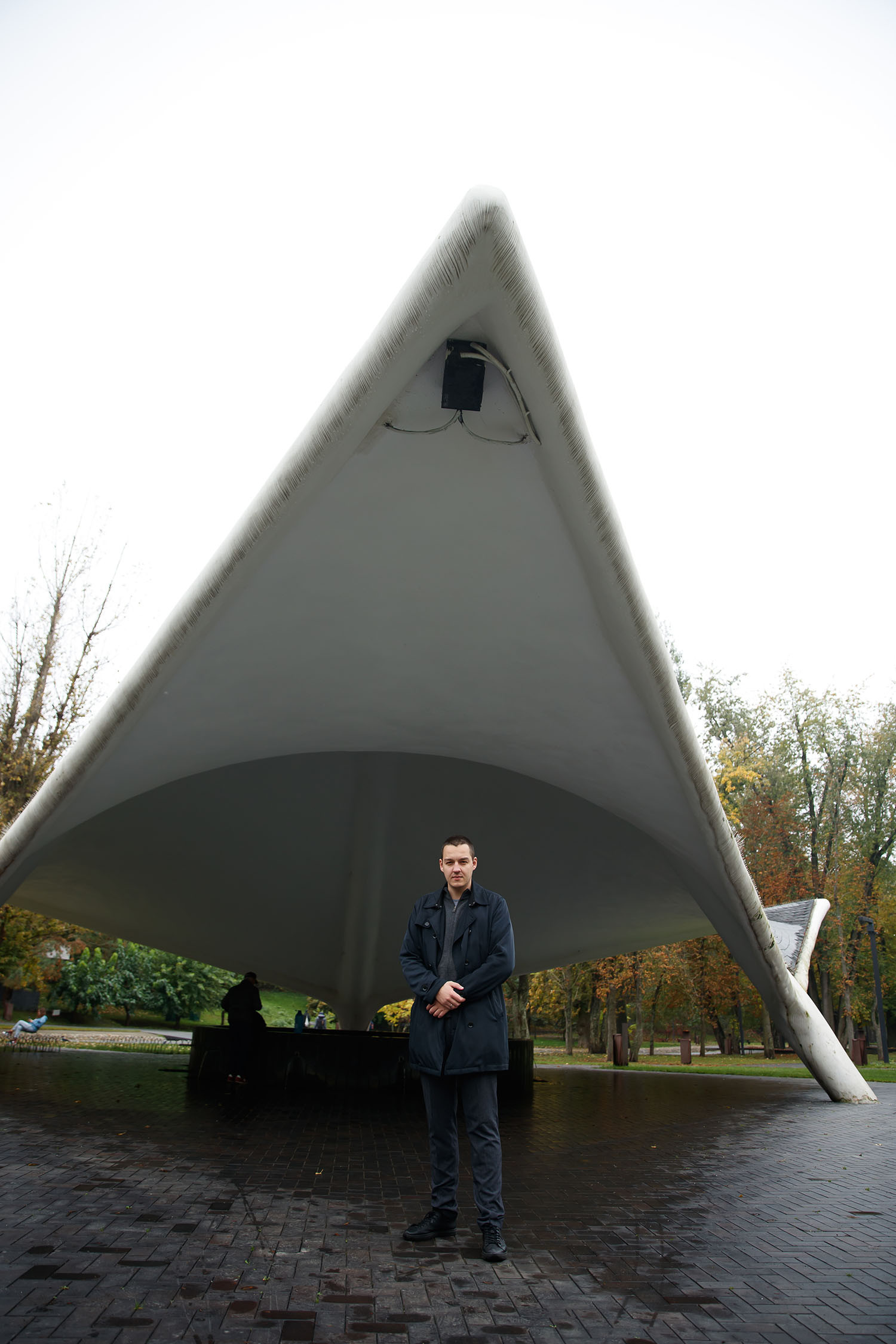
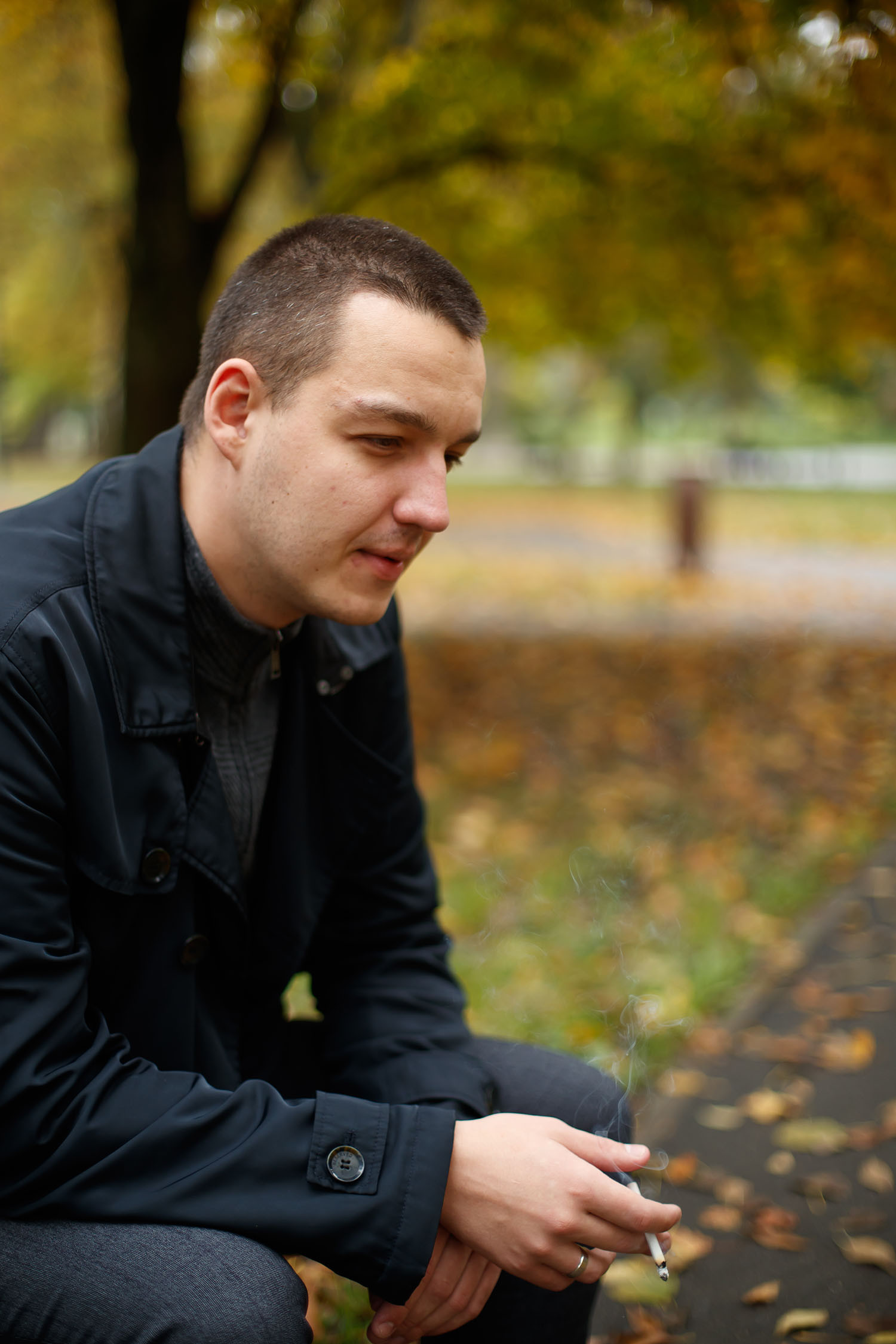
I realized that my wife is almost at the epicentre of the explosions. I rushed to her. At that point, the Grad multiple rocket launcher systems started firing. Tree branches were flying over us. Shells exploded some 50-60 meters away. Shell-shocked by the explosions, birds fall to the ground. I knew then that I was running towards my death.
My wife was standing by the spring shocked, with eyes the size of bowling balls. I grabbed her, and we ran behind a toilet, fell down, and I covered Yulia with myself. Just at the same moment, shells began exploding right above our heads.
Pause. We got up. And then the second burst of explosions began. I hear the debris falling down beside me. I see a wounded man lying nearby. But shocked by what was going on, I couldn't think of anything better to do than grab the second bottle of water and run to the car with my wife.
On March 1, the Regional Administration building was bombed. My mother-in-law and I were at home, and at that hour the enemy aviation was flying wildly. The explosions nearby made our five-storey building shake. It was then that I realized: we must evacuate from Kharkiv.
My mother-in-law refused to go because her ex-husband told her that leaving was pure suicide. Yulia didn't want to leave her mother and refused too. A wild argument broke out. So I decided to wait. Anyway, I was going to take my wife out even if it was against her will, for when we got married, at the altar, I vowed to protect her and take care of her both in sorrow and in joy.
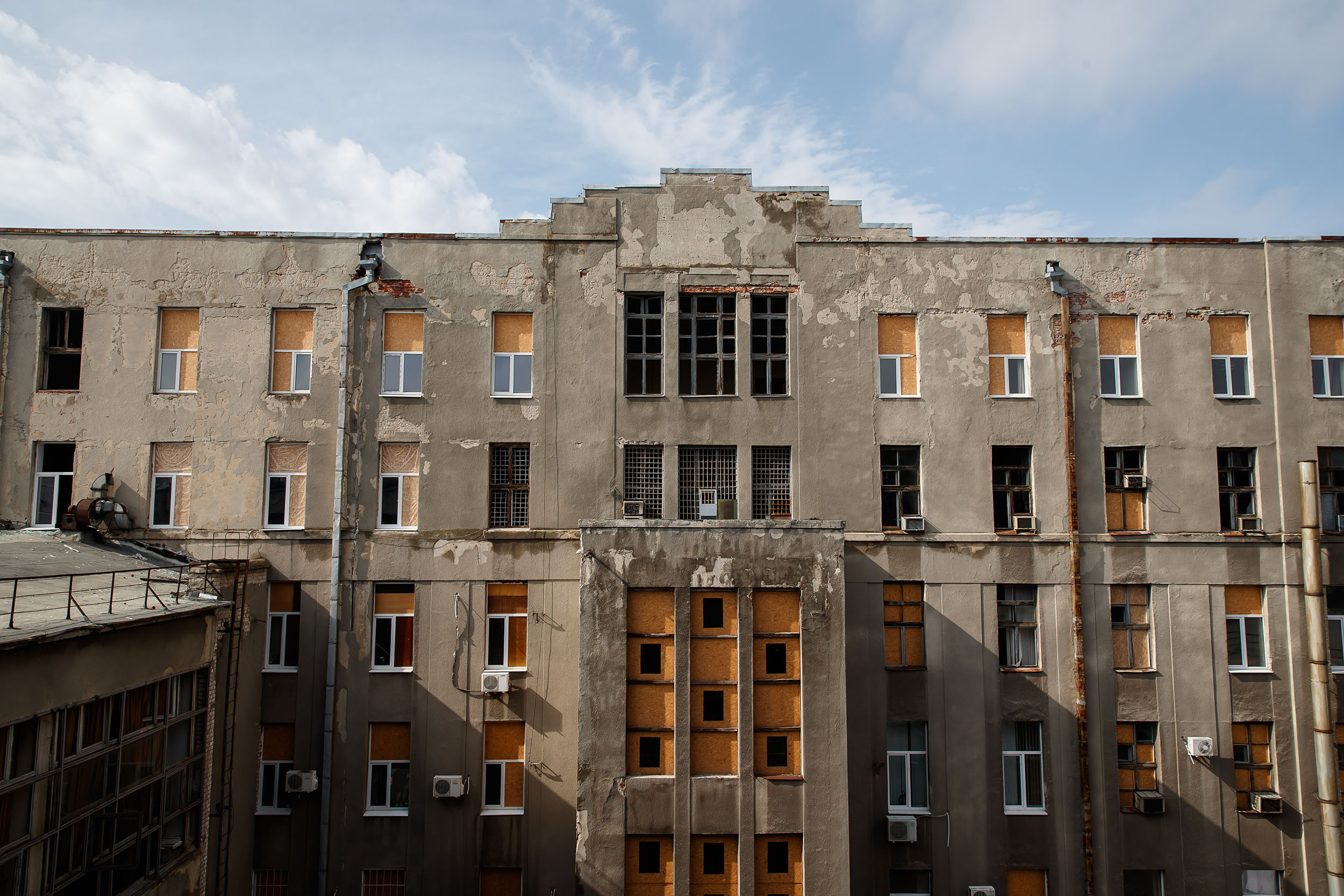
But on March 2, my mother-in-law and my wife agreed to leave for Horishni Plavni, to stay with my friend's mother. At noon we drove past the Kharkiv City Council. At about 1:30 p.m. it got hit by a rocket.
It took us 20 hours to get to Horishni Plavni, because of the huge traffic jams at the checkpoints. When we got to the place and dropped off our things, I went to the shower. I locked the door, turned on the water, and tears started running down my face. I simply became conscious of what we had gone through in those days.
We didn't stay at my friend's mother's for long. We found an apartment and moved out. My mother-in-law went abroad. I stayed in Horishni Plavni until May 17 and then returned to Kharkiv. My wife is staying in the Poltava Oblast until it is safe enough to return to Kharkiv.
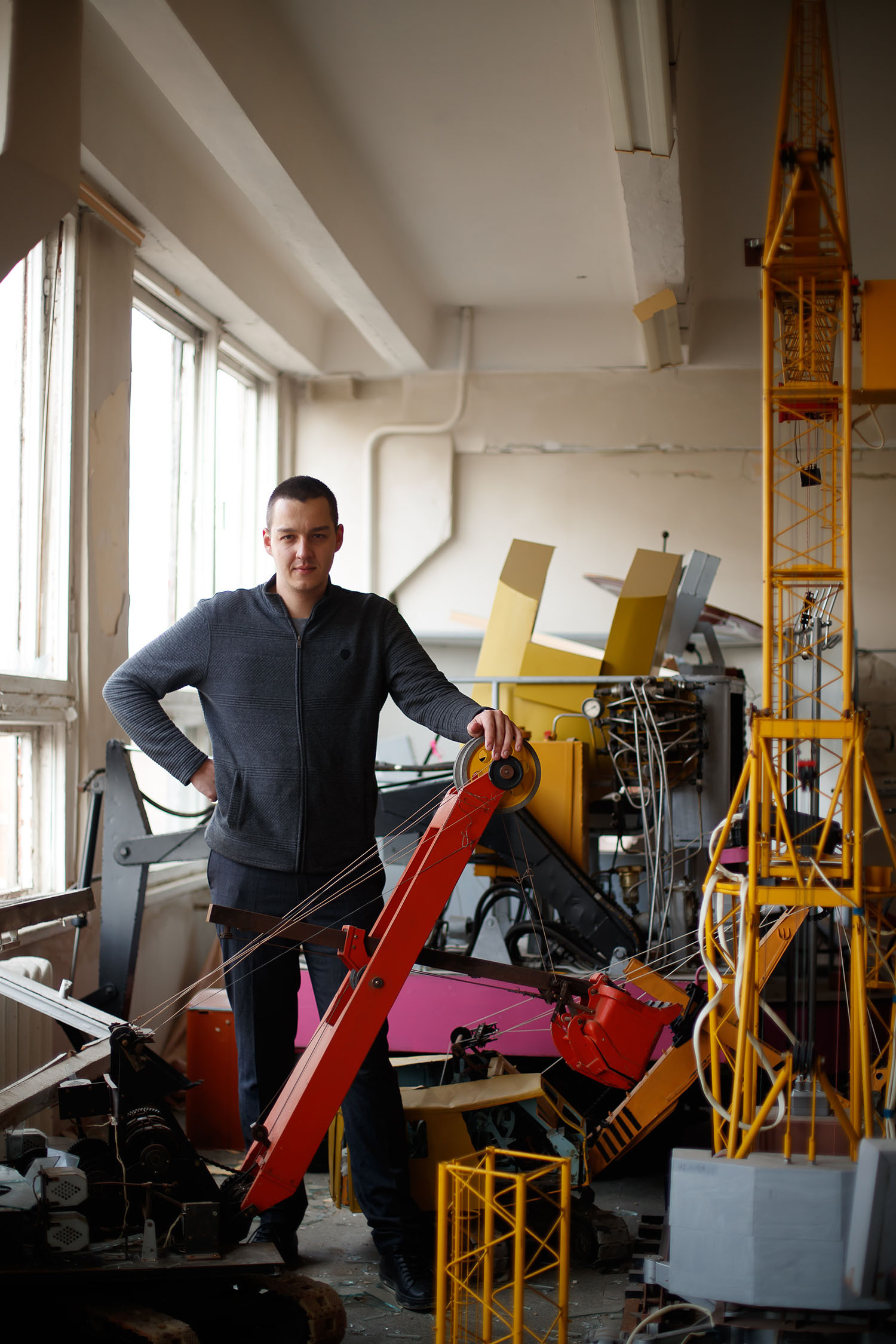
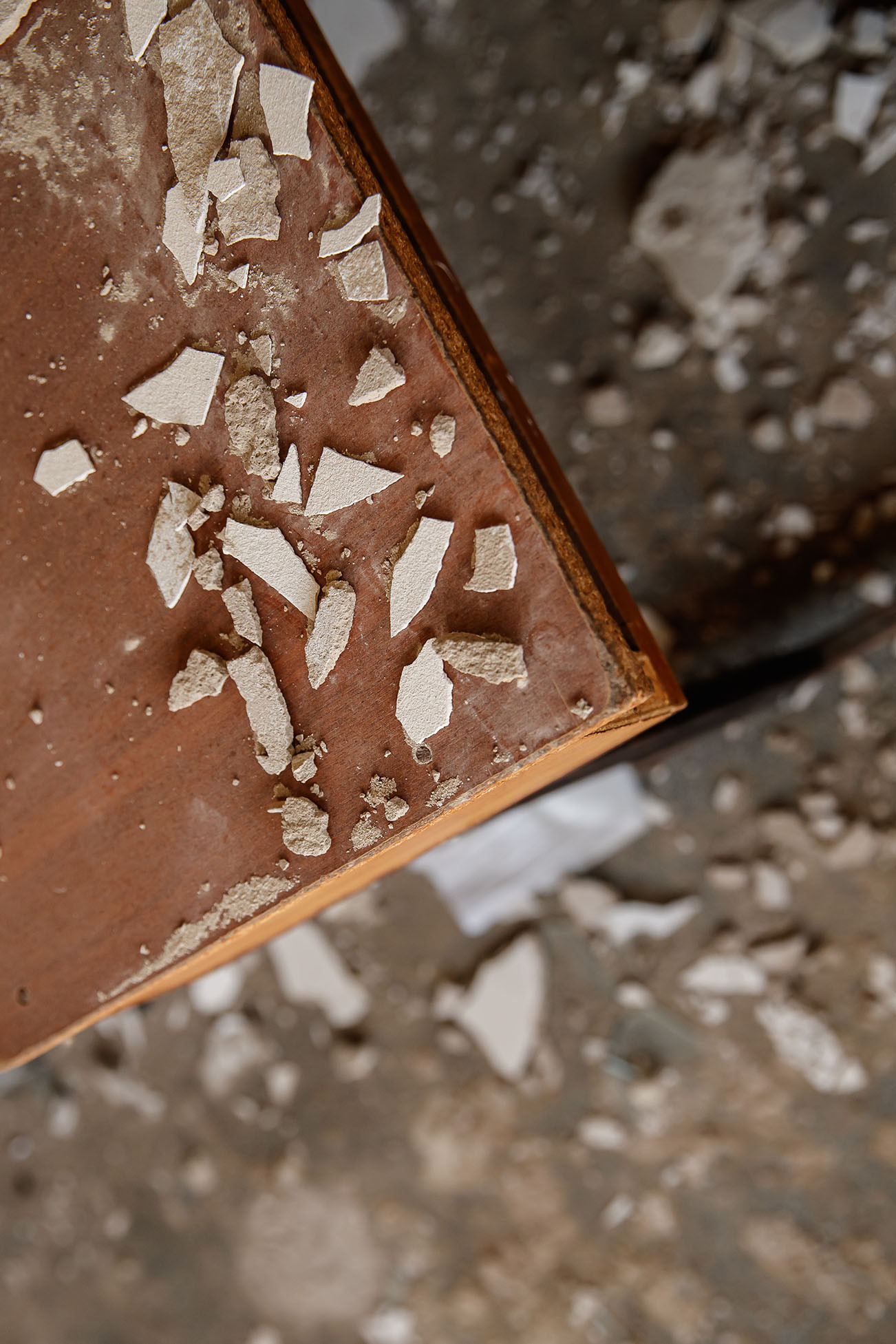
Why did I return to a city that was being bombed? I excluded myself from the ranks of civilians. Now I'm busy fighting on the construction and reconstruction front of the city. I help out with what I do best, even though I have miraculously survived six times: shells exploded near me more than once. In May, during the shelling of the Pavlovo Pole, a rocket hit my building. Luckily, I wasn't at home at that time.
I associate myself more with Kharkiv than with Alushta. But I have lived in both cities for approximately the same time.
I remember my wedding in the peaceful Kharkiv: none of my Crimean relatives attended it. Neither did my parents nor my friends. My parents, by the way, especially my father, still believe that Russia came to "liberate" us and that everything should be the way it is. My father is foaming at the mouth yelling about NATO bases and the Americans. He sends me videos of Kiselyov and Solovyov, so I can "see this war from the other side". Meanwhile, my mother says "it isn't all that simple".
It was only when the Kharkiv Thermal Power Station was hit, on September 11, that for the first time in eight years and six months my mother said: "What a bunch of fuckers these Russians are!".
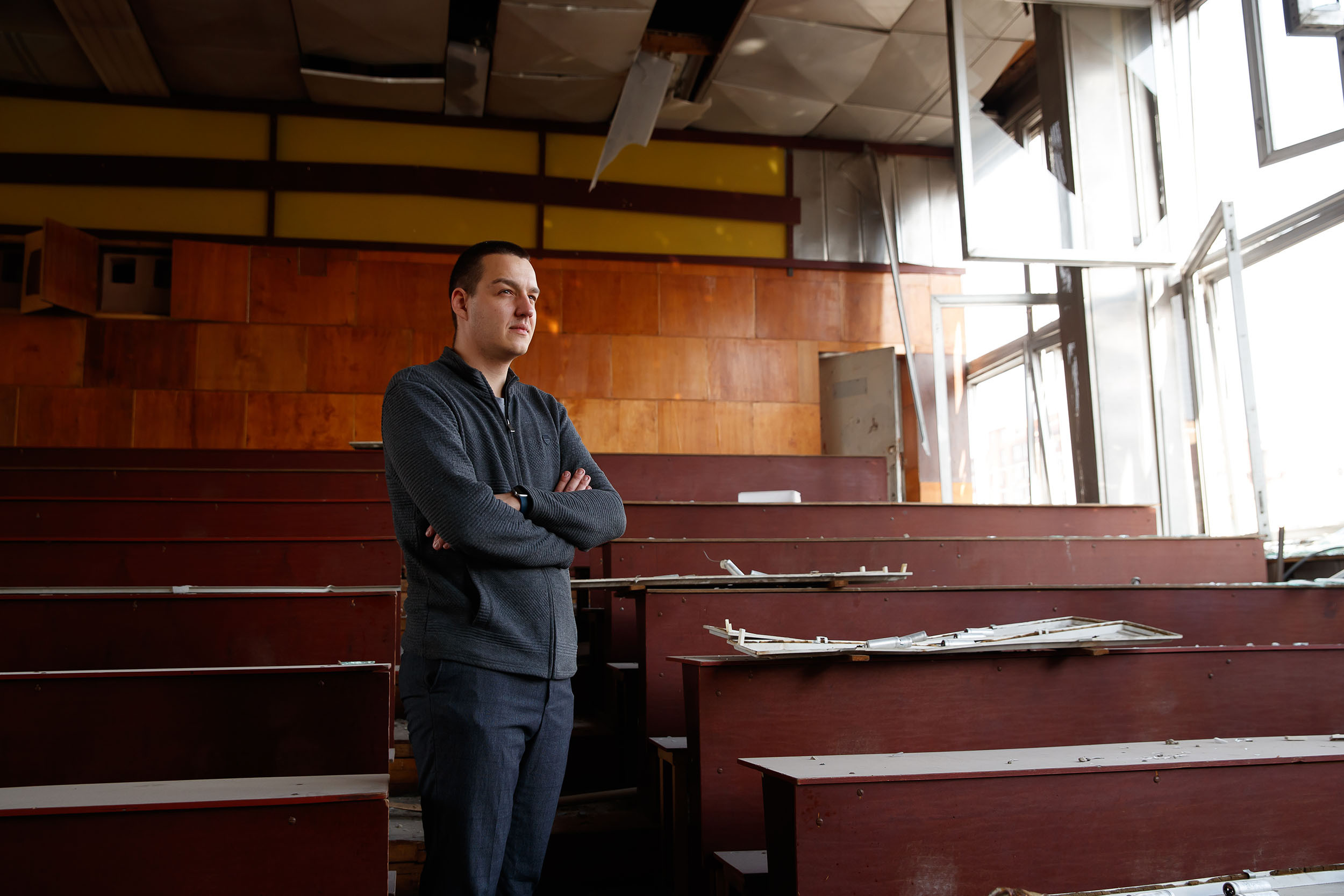
For me, Kharkiv is about people first and foremost. I remember the toast I said at my wedding: I was very grateful to the city and its people for accepting me. In Kharkiv, I was very lucky with the people. I happened to meet kind, bright, and good people here, who taught me and treated my problems with understanding. This is because Kharkiv citizens are people who will never leave you in trouble. They will always help.
These people and this city are worth living and breathing for, as well as remaining a loyal friend and support to them. Of course, there are enough problems in Kharkiv. But I fell madly in love with this city and decided to stay with it and in it to the end.
I work to renew it. For me, it is about paying tribute to Kharkiv and thanking it for accepting me. There is something special about this city. And I will work my ass off for Kharkiv till it all ends.
I also really want to see the faces of my parents and old friends from Crimea when an APC with Ukrainian flags drives into the square in Alushta. I will ask them: 'Well, where is your Russian Federation? Oh, is it gone? What a pity!
Recorded by Valeriia Merenkova
Translated by Volha Mikhnovich
Photographed by Oleksandr Osipov
